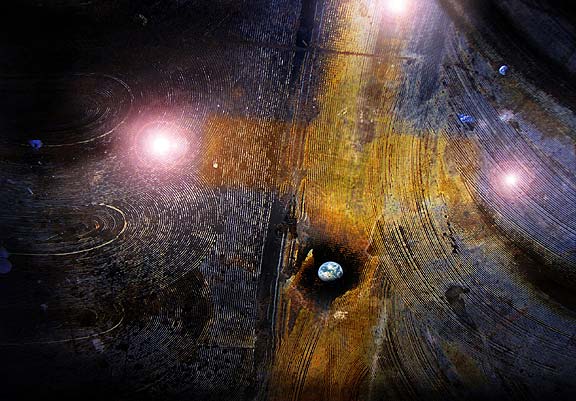4 Views of Divine Foreknowledge: Open Theism
This past Spring I read a host of books ranging from topics including: Orthodoxy, the creation debate, philosophy of religion, postmodernism, arguments from the existence of God, and God's foreknowledge. What does this mean? If time allows a lot of content for the blog and website. This is the first of the blogs I will be writing. I read a book called Divine Foreknowledge: Four Views by James Beilby. If you are interested in purchasing this, you can do so on Amazon.com. This is a comparison of four views of God's foreknowledge from different scholars. What do we mean by God's foreknowledge? We mean what does God know and when does He know it. Over the next four weeks, we'll summarize four views starting with open theism as explained by Gregory Boyd. I will refrain from commentary until then last addition. Let me reiterate, I am not claiming which of these is my view, but rather a concise summary of the authors explanation and view of these opinions on God's foreknowledge.
The Open Theism View by Gregory A. Boyd
Boyd’s open theism holds that God
is omniscient, but understands creation differently. God’s understanding of
reality contains both open and settled aspects. In this view, God has settled
certain things. The settled things are unalterable. Everything else is uncertain until it
happens.[1]
The Biblical Foundation
of the Classical Position
The Bible is a thorough record of
God’s foreknowledge and control of the future. God is recorded to proclaim
events, people and their accomplishments. Many Scriptures confirm God is the
author of history.[2] “His
overall purposes for creation will not fail, and his purpose for our lives is
secure.”[3]
However, just because some things are determined, does not mean all things are
determined.[4] Isaiah
46:9-11 holds the strongest implication of foreknowledge of control. In spite
of this inflection, neither this text nor any other text in Scripture declares
God’s determining or knowing all events. Also, God alone knows His purposes and
objectives to control the future.[5] The
openness view is viable, because first, we deliberate and think. This indicates
free will in our decision making. Second, this viewpoint is being explored and
confirmed by modern science. Third, it can be seen in God’s judging a nation
with or without his ordaining or foreknowledge.[6] Last, it is unwarranted to suppose that
certain individuals were chosen or foreknown to perform certain evil deeds, e.g.
Judas. It is possible only the deed was determined.[7]
Scripture and the
Openness of Creation
A key difference between open
theism and classical view is God’s responsiveness and flexibility to the
unknown events of His creation. This is seen in seven themes.[8]
First, God deals with the unexpected. However God is never “caught off
guard-for he anticipates all possibilities-he is nevertheless occasionally
surprised at the improbable behavior of people.”[9]
Such examples are found in Scripture.[10]
Second, God expresses disappointment. God has repented making humans (Gen. 6:6)
and making King Saul (1 Sam 13:13).[11] This regret does not mean God is not wise. If
the future is partly open, God’s perfectly wise decision had the “greatest
possibility of yielding the best results.”[12]
Third, God expresses frustration. In Ezekiel 22 God wanted someone to intervene
on behalf of Israel to no avail. Why would God search for someone knowing no
one would show? Fourth, God speaks conditionally. Throughout Scripture God
speaks of what might or might not happen.[13] Fifth, God tests individuals to see their
character, e.g. Abraham putting Isaac on the altar.[14]
More examples are throughout Scripture.[15] Last,
God changes His mind.[16]
Five Objections
These are in brief five common objections to this view. Followed by each is a brief response from Body.
First, the passages used are anthropomorphic and phenomenological. However, nothing suggests this is so; the arguments used to support this are weak and self-refuting.[17] Second, the openness view challenges Scripture. However this is in reference to God changing his mind and there’s no reason to deny the Scripture that indicates He does.[18] Third, this view weakens God’s omniscience. However this view looks to understand if God’s knowledge includes or excludes possibilities.[19] Fourth, this view weakens God’s sovereignty. This view sees God as determined certain things to achieve His final purpose.[20] Last, this view is unsettling. However, our comfort is a personal preference. We can still know God works events for good to those who love God.[21]
First, the passages used are anthropomorphic and phenomenological. However, nothing suggests this is so; the arguments used to support this are weak and self-refuting.[17] Second, the openness view challenges Scripture. However this is in reference to God changing his mind and there’s no reason to deny the Scripture that indicates He does.[18] Third, this view weakens God’s omniscience. However this view looks to understand if God’s knowledge includes or excludes possibilities.[19] Fourth, this view weakens God’s sovereignty. This view sees God as determined certain things to achieve His final purpose.[20] Last, this view is unsettling. However, our comfort is a personal preference. We can still know God works events for good to those who love God.[21]
Well, there you have it. This the the open theism view as laid out by Boyd. Next week we will look at the Simple Foreknowledge View by David Hunt.
[1] Beilby,
13-14.
[2] Ibid,
14-15.
[3] Ibid,
15.
[4] Ibid,
15-16.
[5] Ibid,
16.
[6] Ibid,
17-19.
[7] Ibid,
19-23.
[8] Ibid,
23-24.
[9] Ibid,
24.
[10] See
Isaiah 5, Jeremiah 19:5; 7:31; 32:23; 3:6-7, 19-20.
[11] Ibid,
26.
[12] Ibid,
27.
[13] Exodus
4; 13:17, Ezekiel 12:3, Jeremiah 26:3, Matthew 26:39.
[14] Genesis
22
[15] 2 Chronicles
32:31, Deuteronomy 8:2; 13:1-3, Judges 3:4.
[16] Ibid,
24-35.
[17] Ibid,
38.
[18] Ibid,
40-41.
[19] Ibid,
42-43.
[20] Ibid,
43-45.
[21] Ibid,
45-47.


Comments
Post a Comment